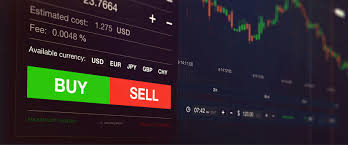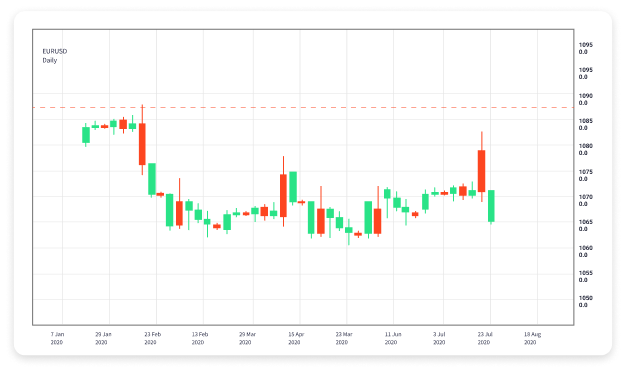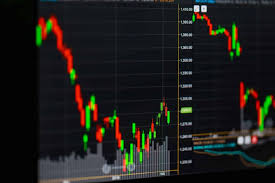October 28, 2025
Mastering Forex Trading A Comprehensive Training Guide 1488277938

Mastering Forex Trading: A Comprehensive Training Guide
If you’re looking to dive into the world of forex trading, you’re on the right track toward financial independence and opportunities. Forex trading, known as foreign exchange trading, involves buying and selling currencies in the global marketplace with the aim of making a profit. Understanding its complexities can transform your approach to investing. This guide will provide you with essential insights into forex trading training and investment strategies. To get started, consider your options with forex trading training Brokers Argentina, which can help navigate your trading journey.
Understanding Forex Markets
The forex market is the largest and most liquid financial market in the world, with a daily trading volume exceeding $6 trillion. Unlike stock markets, forex operates 24 hours a day, five days a week, making it accessible for everyone, from small retail traders to large financial institutions. The primary objective of trading in this market is to profit from fluctuations in currency values.
Essential Concepts in Forex Trading
Before delving into the trading process, it’s crucial to grasp several fundamental concepts:
- Currency Pairs: Forex trading involves pairs of currencies, such as EUR/USD or GBP/JPY. The first currency is the base currency, while the second is the quote currency.
- Pips: A pip is the smallest price movement in a currency pair. Understanding pips is vital for measuring price changes and calculating profit or loss.
- Leverage: Forex brokers offer leverage, allowing traders to control larger positions with a smaller amount of capital. While this can amplify profits, it also increases risk.
Developing a Trading Strategy
An effective trading strategy is essential for successful forex trading. Here are key components to consider when developing your strategy:
1. Technical Analysis
Technical analysis uses historical price charts and various indicators to forecast future price movements. Traders typically employ tools such as moving averages, Relative Strength Index (RSI), and Bollinger Bands to identify potential entry and exit points.

2. Fundamental Analysis
Fundamental analysis involves evaluating economic indicators, geopolitical events, and other macroeconomic factors that influence currency values. Interest rates, inflation, and GDP reports can all significantly impact currency strength.
3. Risk Management
Effective risk management is the backbone of a sustainable trading strategy. Ensure you set stop-loss orders, calculate position sizes appropriately, and never risk more than a small percentage of your account on a single trade.
Choosing a Forex Broker
Selecting the right broker is a critical step in your trading journey. Look for brokers that offer competitive spreads, robust trading platforms, excellent customer service, and regulatory compliance. Brokers Argentina can provide insights into reputable platforms suitable for your trading needs.
Learning Resources for Forex Trading
Education is vital for thriving in the forex market. Fortunately, a wealth of resources is available:
- Online Courses: Numerous platforms offer structured forex trading courses, catering to beginners and advanced traders.
- Trading Books: Various authors have penned down invaluable insights into trading psychology and strategies. Books such as “Currency Trading for Dummies” are great starting points.
- Webinars and Seminars: Participating in live webinars or attending forex seminars can provide you direct access to expert insights and practical knowledge.
- Demo Accounts: Utilize demo accounts to practice your trading strategy without risking real money. This is an excellent way to build confidence and refine your skills.
Understanding Trading Psychology
The psychological aspect of trading is often underestimated. Traders face emotional highs and lows that can affect decision-making. Successful traders cultivate emotional discipline, patience, and resilience.

1. Controlling Emotions
Fear and greed can cloud judgment. It’s essential to stick to your trading plan, regardless of emotional responses to market fluctuations.
2. Setting Realistic Goals
Set achievable and measurable goals to gauge your progress in trading. Avoid the temptation of chasing unrealistic returns, as this can lead to risky trades.
Staying Updated with Market News
For successful forex trading, staying informed on the latest financial news and events is crucial. Economic calendars can help traders anticipate changes in the market due to scheduled announcements and reports.
Conclusion
Forex trading offers tremendous opportunities for those willing to learn and adapt. As you embark on your trading journey, prioritize education and practice through demo accounts. A well-formulated strategy, combined with sound risk management, can lead to success in the dynamic forex market. Remember, even seasoned traders continue to learn and refine their strategies regularly. Utilize resources like Brokers Argentina to enhance your trading experience and access valuable insights.
